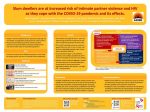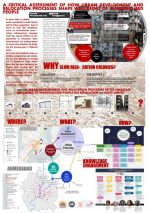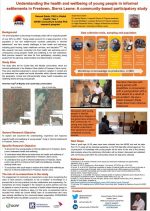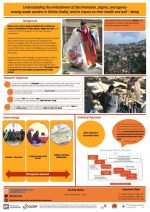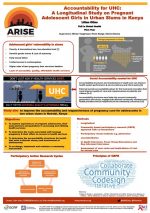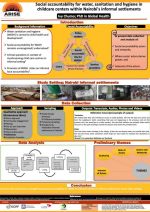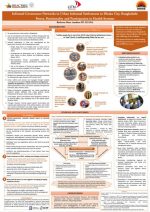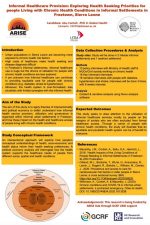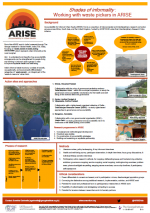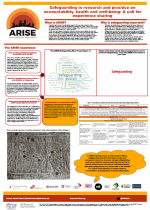Slum dwellers are at increased risk of intimate partner violence and HIV as they cope with the COVID-19 pandemic and its effects. Background People in informal settlements face disproportionally high risk of ill-health, including HIV & intimate partner violence (IPV). Shocks, like the COVID-19 pandemic and the resultant economic and social lockdowns, interrupt existing services […]
For many slum-dwellers, state relocation programmes are probably the only gateway to moving out of dangerous living conditions. But has their wellbeing improved after moving out? Do their lives improve? Do their aspirations change? Do their perceptions about life change? Download poster
The world population is becoming increasingly urban with an expected growth of over 60% by 2050. Young people account for a large proportion of the population in low and middle-income countries particularly in informal settlements, and face several challenges to their health and well-being, including good housing, basic healthcare services, and education. Yet, little research […]
Existing evidence and knowledge on waste workers in India is largely focused on the scientific treatment of waste and integrating waste workers into solid waste management systems. Research that explores and understands the more intimate aspects of their lives is hard to find. This research aims to bring forth the lived realities and experiences of […]
Accountability structures and mechanisms in health care can improve health system performance & service delivery and inform policy. Download poster
Objectives of this study were to present data collection and analysis of social accountability actors and networks, where social actors derive power; and interests of the actors. Download poster
This study aims to map informal governance networks of informal settlement in Dhaka City, Bangladesh and asks how these influence the health and wellbeing of residents. This poster focuses on understanding informal governance networks and the role of different actors. Download poster
The aim of this study is to apply theories of intersectionality and political economy to better understand how informal health service provision, utilization and governance is organised within informal urban settlements in Freetown, and how these impact on the health and healthcare access of people living with chronic health conditions. Download poster
Part of the ARISE work in India is steered through the George Institute for Global Health, India. It is focused on ‘waste pickers and waste picking communities’ which represent urban informality at its most marginal. The work aims to understand and describe how accountability arrangements can be strengthened for people living and working in informal […]
This poster outlines the approach that ARISE has taken to creating a safeguarding policy and associated management systems. For ARISE, safeguarding concerns are not limited to sexual abuse and exploitation, but include physical and psychological abuse, exploitation and neglect. Vulnerable people are those who may be at risk of abuse or neglect due to the […]
